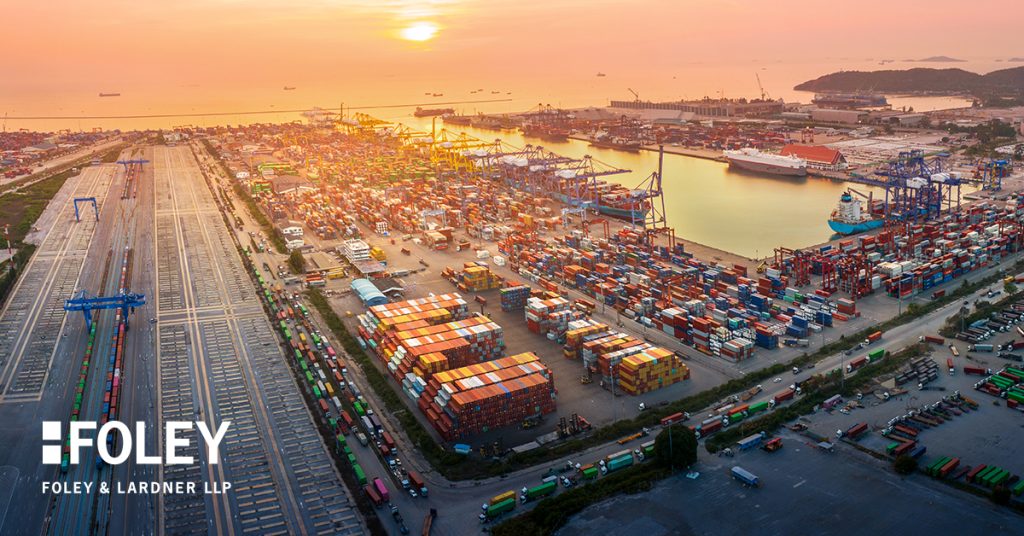Listen to the article
U.S. customs enforcement efforts have reached unprecedented levels of scrutiny, leaving multinational companies facing heightened compliance risks that extend far beyond traditional import procedures. This evolution marks a significant shift in how federal authorities approach trade violations, with potential ramifications that can impact a company’s entire operational structure.
Recent enforcement trends indicate that U.S. Customs and Border Protection (CBP) has intensified its focus on complex trade compliance issues, moving beyond routine documentation checks to comprehensive investigations of corporate supply chains. Companies operating across borders now face a dual threat: stricter customs enforcement alongside an increased risk of False Claims Act litigation.
Industry experts point to several high-profile enforcement cases that have resulted in multimillion-dollar settlements, signaling a clear message that customs violations will be treated with increasing severity. Many of these cases have originated not from government-initiated investigations but from whistleblower complaints filed by current or former employees with detailed knowledge of internal compliance failures.
“The intersection of customs enforcement and False Claims Act liability represents a perfect storm for multinational businesses,” explained a senior trade compliance attorney who requested anonymity due to involvement in ongoing cases. “Companies that previously viewed customs issues as minor operational concerns now recognize them as significant legal and financial risks.”
The False Claims Act, originally enacted during the Civil War to combat procurement fraud, has become a powerful tool in customs enforcement. Under this legislation, entities that knowingly submit false claims to the government can face treble damages and substantial penalties. When applied to customs violations, such as misrepresenting product classifications or country of origin, the financial exposure can be staggering.
For companies in sectors heavily dependent on global supply chains—including manufacturing, retail, technology, and pharmaceuticals—the stakes have never been higher. Industries with complex sourcing arrangements across multiple countries face particularly acute risks, as determining accurate country of origin designations becomes increasingly challenging amid shifting trade agreements and tariff structures.
The automotive sector offers a telling example. With components often sourced from dozens of countries before final assembly, automakers must maintain meticulous documentation of each part’s origin to ensure compliance with trade preference programs and to avoid potential False Claims Act liability. One automotive supplier recently faced a $6.5 million settlement after allegations emerged regarding incorrect country of origin declarations for components imported from China.
Similarly, textile and apparel companies navigate a complex regulatory landscape where slight misclassifications or origin declarations can trigger substantial penalties. The fashion industry has witnessed several enforcement actions stemming from attempts to circumvent tariffs on Chinese-made goods by routing products through third countries while falsely declaring them as originating elsewhere.
Technological solutions have emerged to address these compliance challenges, with many multinational corporations investing in sophisticated trade management systems. These platforms can automatically validate customs declarations against supporting documentation, flag potential compliance issues, and maintain audit trails that prove invaluable during government investigations.
“Proactive compliance has shifted from a best practice to a business necessity,” noted a supply chain executive at a Fortune 500 retailer. “The investment in robust compliance programs typically costs far less than a single enforcement action.”
Experts recommend that companies implement comprehensive risk assessment procedures, conduct regular internal audits, and establish clear communication channels between procurement, logistics, and legal departments to minimize exposure. Training programs for employees involved in import operations have also proven effective in reducing unintentional compliance failures.
The current enforcement climate shows no signs of easing, with bipartisan political support for strict oversight of international trade practices. Companies operating globally must recognize that customs compliance is no longer a back-office administrative function but a core component of corporate risk management.
As enforcement patterns continue to evolve, multinational organizations would be well-served to review their customs compliance procedures regularly, maintaining vigilance against the potentially devastating combination of heightened customs scrutiny and False Claims Act exposure.
Fact Checker
Verify the accuracy of this article using The Disinformation Commission analysis and real-time sources.




12 Comments
This article underscores how customs enforcement has become a major compliance concern for multinationals. The False Claims Act angle adds an extra layer of legal exposure to consider.
Yes, the potential for whistleblower lawsuits is a real threat that companies will have to address proactively. Maintaining robust internal controls and reporting mechanisms will be crucial.
Interesting how customs enforcement has evolved to focus more on corporate supply chains. I wonder how this will impact multinationals and their compliance efforts going forward.
Yes, the increased scrutiny and False Claims Act risks seem daunting. Companies will need to really shore up their customs and trade compliance programs to avoid costly issues.
The heightened scrutiny on corporate supply chains is an interesting development. I wonder how this will affect smaller multinational firms that may have less resources to dedicate to compliance.
That’s a good point. Smaller multinationals could face disproportionate challenges in meeting the increased compliance demands. They may need to seek outside expertise to stay compliant.
This article highlights the evolving nature of customs enforcement and the growing legal risks for multinationals. Companies will really need to up their game when it comes to trade compliance.
Absolutely. The stakes are high, with potential multimillion-dollar settlements. Proactive measures to identify and address any compliance gaps will be critical.
The shift from routine documentation checks to comprehensive supply chain investigations is a significant development. Multinationals will need to rethink their trade compliance strategies in response.
Absolutely. The risks are no longer just about getting the paperwork right. Companies have to ensure end-to-end visibility and control over their entire global operations.
The article highlights some high-profile cases that resulted in large settlements. This shows how serious the authorities are taking customs violations these days. Businesses better be on top of their game.
Agreed. Whistleblower complaints add another layer of complexity that companies will need to navigate carefully. Proactive compliance is key to avoiding major problems.